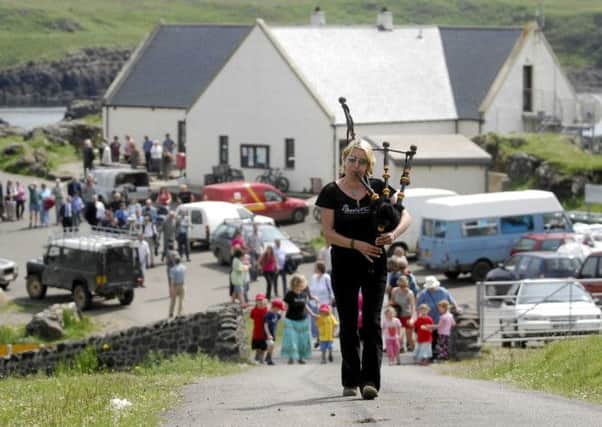Working to make the most of our land


Having a meaningful say in what goes on around you is at the very heart of a sense of community.
Developing and sustaining thriving communities is essential in making your local area a better place for future generations. This is particularly the case in rural Scotland where local economies are often fragile and communities need support to ensure they can attract fresh faces and retain young people.
Advertisement
Hide AdAdvertisement
Hide AdThe concept of community empowerment is therefore crucially important and needs to be underpinned with robust and creative thinking.
We should, however, define what meaningful community empowerment actually means. We already have several layers of government, including community councils, local authorities, MSPs and MPs, where those wishing to represent their local area can play a part in decision-making. That is aside from specific interest groups, residents’ associations and the like. That said, it is understandable that people don’t necessarily want to embark on a political career to have their say.
So what is missing? And can community empowerment be improved? There is no doubt that even though planning legislation was amended to ensure greater public consultation, many communities are frustrated by the planning process, as are people wishing to bring much-needed development to rural areas. Community planning needs to work better and should be a central plank of delivering greater community empowerment.
The Scottish Government is bringing forward proposals for greater powers for communities in a draft Community Empowerment Bill. Proposals being considered include a new way for communities to take on public sector land and buildings; opportunities for communities to be more involved in shaping and delivering better outcomes locally; greater transparency in the management and disposal of the Common Good; improved powers for local authorities to recover the costs of dealing with dangerous and defective buildings. The Bill is also likely to include measures to streamline and extend the rural community right to buy to the whole of Scotland; new duties to strengthen Community Planning, so that public sector agencies work as one to deliver better outcomes for communities; and much needed updated and simplified legislation on allotments.
Few would argue with Derek Mackay, the minister for local government and planning, when he says in his foreword to the recent consultation on these new powers that communities have a vital role in determining their own futures – and the development of local economies, environments and cultures is essential. However, it is regrettable that the Scottish Government has sought to fuse many worthy aspirations with their ongoing land reform agenda.
Unfortunately, many advocates of land reform continue to perpetuate the myth that private landowners are somehow detached from their local communities. The clear evidence suggests that the overwhelming majority of landowners both live locally and play a constructive role in their communities. Of course, there are cases where a landowner is not resident and integrated with the community but still contributes constructively through investment and employment. There is a real risk of government falling into the trap of thinking that empowerment means ownership. There are many ways in which communities can be involved in the use of land without ownership, and this should be borne in mind.
Better community planning is central to delivering the key aims of enabling more people in both rural and urban Scotland to have a stake in how land is used, and to generating and supporting improved relationships between land, people, economy and environment. Communities should also be encouraged to work in partnership with landowners and other agencies to deliver what is best for the area. How land is managed is more important than who owns it.
As an organisation, we support the Community Right to Buy and firmly believe that the process can be improved for all involved. We also think there is merit in extending this to urban areas, but the purchase should always be founded on the basis of a willing seller.
Advertisement
Hide AdAdvertisement
Hide AdThe Scottish Government’s consultation also contains proposals on the forced sale of assets through a compulsory power for communities to buy neglected or abandoned land. While we all want to see best use of our limited land supply, there are many problems with this proposal, not least the definition of what is abandoned. Land that is purchased for a long-term strategic purpose but is not developed immediately or land which lies fallow as part of a sound land management approach could be taken away from an owner which, many believe, would be problematic in terms of the European Convention on Human Rights.
Real progress can be achieved in delivering community empowerment, particularly if we move from a divisive to a collaborative approach. Recognising that private landowners are part of the solution rather than part of the problem would be a good place to start. • Sarah-Jane Laing is Director of Policy at Scottish Land & Estates
SEE ALSO